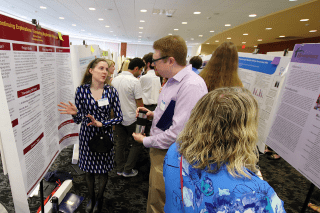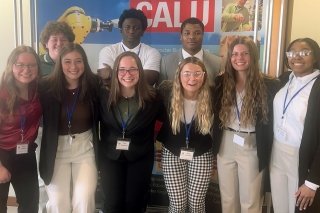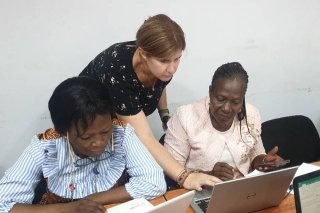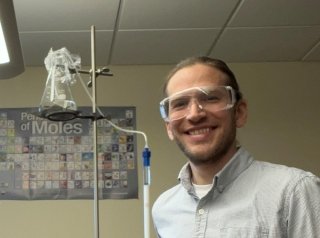An English translation for an Icelandic Saga
Posted:

Samara Osburn is bringing life back to Old Norse culture by translating Icelandic Sagas that would otherwise possibly never be translated and forgotten.
Obsurn is researching the translation of Hrana Saga Hrings, an Icelandic Saga that has no known English translation. According to Osburn, she will be translating the manuscript from Old Norse into English and then comparing it to other Icelandic Sagas. Focusing on similar themes and recurring characters.
“For decades pop culture has been influenced by the Norse, serving as inspiration for Lord of the Rings and Game of Thrones to Marvel’s Thor and the TV show Vikings,” says Osburn. “Translating Hrana Saga Hrings and making it publicly available to English readers could inspire not only new pop culture creations but also provide new information to our understanding of the Norse and their cultural impact on the world today.”
Osburn’s interest in Old Norse culture goes back many years. Last year, she began studying the language with Angelo Costanzo, associate professor of English.
“During these studies, I discovered there are a significant amount of completely untranslated sagas or sagas that don’t have readily available English translations,” says Osburn. “I thought translating one of these sagas would be a great way to not only prepare myself for my future career but to also increase public knowledge of Norse sagas.”
Osburn chose Hrana Saga Hrings because there is very little, and often conflicting, information about it.
“For example, some have claimed the text was composed in the 18th or 19th century, while others argue the text is much older and was first written down in the 13th or 14th century,” said Osburn. “Like many sagas, however, Hrana Saga Hrings only exists in post-medieval manuscripts.”
Obsurn added part of her research focuses on examining things, such as place names and loan words used in the saga to try and understand when it may have been recorded.
Osburn will be officially a Bloomsburg University student starting in July.
“I’m a high school student through the ACE (Advanced College Experience) program. July will be my first year as a degree-seeking college student at BU. However, I have the credits of a college Junior,” says Osburn.
Osburn is completing her research as part of the URSCA (Undergraduate Research, Scholarly, Creative Activity) program.
“The opportunity to conduct research at the undergraduate level is phenomenal, and I’m really lucky that my first job revolves around my passion. This experience will really prepare me for grad school,” says Osburn.



